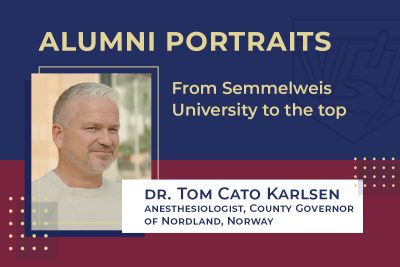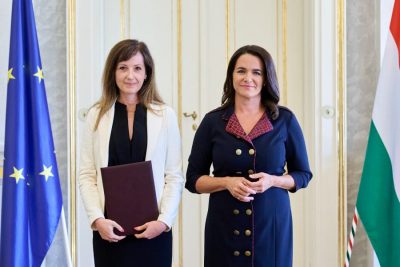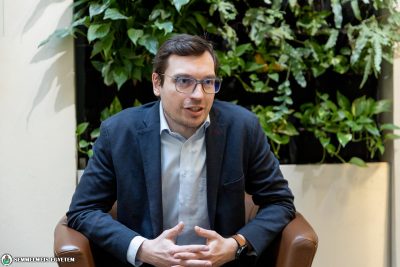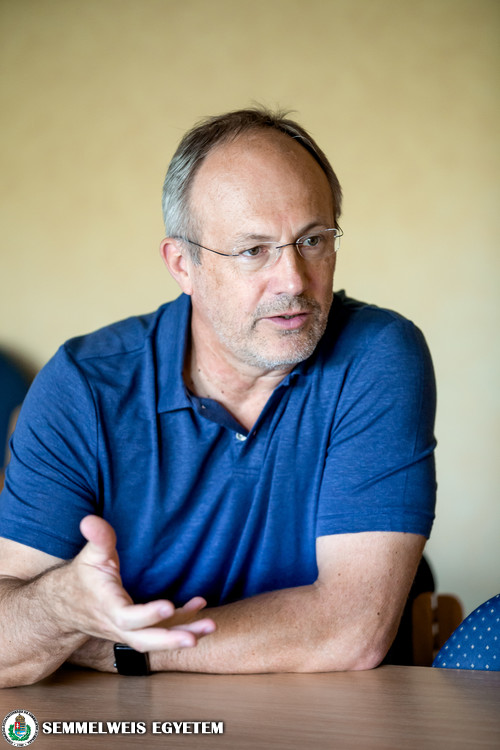 “The EKK can no longer be called a small faculty, since significant progress has been made as the result of the work of the past 10 years,” said Dr. Miklós Szócska. Management training is one of the main programs, and the faculty could soon become a European support office in the topic of so-called change management, which falls within this area. The Health Services Management Training Center (EMK) recently held a program focused on change management for the Latvian health ministry, its background institutions, as well as top managers and experts working in the biggest hospitals, and they have also developed a strategy paper for the WHO on this topic. The dean noted that due to the high interest for social services management training and the growth of the sector, they are planning on setting up a fourth institute, and a new group of teachers has already joined them to achieve this goal. The Institute of Digital Health Sciences (DEI) has been dealing with artificial intelligence-based applications for years, studying what is needed in order to use the opportunities provided by digitalization most efficiently, and these topics are also at the forefront of interest today, said Dr. Szócska. And third, the Institute of Mental Health grants a stable place for topics related to social sciences and mental health, the dean added. “We have everything needed at the faculty to deal with the topic of active and healthy aging, in a way that we are also able to support the digital systems, institutions and the people as well who serve this area,” said Dr. Szócska.
“The EKK can no longer be called a small faculty, since significant progress has been made as the result of the work of the past 10 years,” said Dr. Miklós Szócska. Management training is one of the main programs, and the faculty could soon become a European support office in the topic of so-called change management, which falls within this area. The Health Services Management Training Center (EMK) recently held a program focused on change management for the Latvian health ministry, its background institutions, as well as top managers and experts working in the biggest hospitals, and they have also developed a strategy paper for the WHO on this topic. The dean noted that due to the high interest for social services management training and the growth of the sector, they are planning on setting up a fourth institute, and a new group of teachers has already joined them to achieve this goal. The Institute of Digital Health Sciences (DEI) has been dealing with artificial intelligence-based applications for years, studying what is needed in order to use the opportunities provided by digitalization most efficiently, and these topics are also at the forefront of interest today, said Dr. Szócska. And third, the Institute of Mental Health grants a stable place for topics related to social sciences and mental health, the dean added. “We have everything needed at the faculty to deal with the topic of active and healthy aging, in a way that we are also able to support the digital systems, institutions and the people as well who serve this area,” said Dr. Szócska.
“In addition to our current programs, for which many more people apply than are positions available and which are at full capacity, we also see room for new training programs, with infrastructure being the only limit to the expansion. However, government and university funds are expected to be available to address this issue,” said the dean. He added that the accommodation for the currently scattered locations for training has become a strategic issue, and they would like to at least group the faculty’s units by their functions. Dr. Szócska also mentioned among their objectives increasing the faculty’s visibility, meaning that the professional activities conducted there in practice should also be reflected more in the number of publications. In order to address this, they have already started the inclusion of new, qualified lecturers. “Around 85 percent of the EMK’s revenues are from outside projects, and we would like to carry this approach over to the other institutes as well, as it is not just financially beneficial but also promotes quality work,” noted the dean. The EKK’s institutes also cultivate wide-ranging international relations, and developing these contacts is a key part of the strategy. “We are already the first choice of several large international partners when they seek consortium partners,” he pointed out.
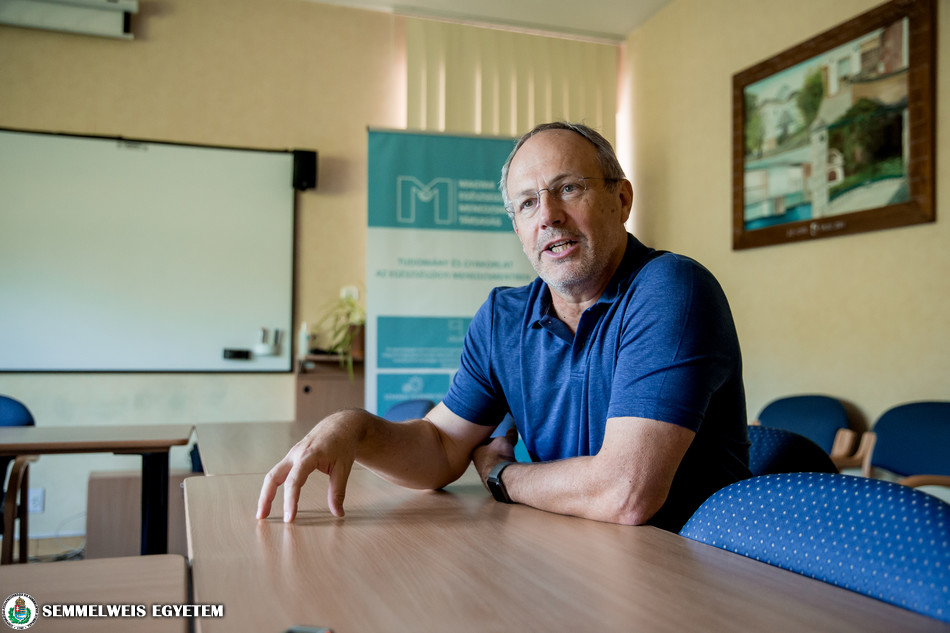 He said the faculty participates in several international projects, for example with the WHO, and is also considered an opinion leader in digital health care topics, in which Dr. Szócska himself is especially interested. He noted that he purposely tries to stay away from current health policy issues nowadays, but he took part in the development of the Electronic Health Care Service Space (EESZT) system on a health policy level, as he believes that a unified national data system is the foundation needed to introduce diagnostic applications or ones based on artificial intelligence. He said that with time, the long-awaited digital transformation will come in health care as well, as electronic administration is becoming the norm in various areas already, replacing paper. He also provided reassurance that the individual will not get lost in digitalization, as these systems are designed to support patients and health care workers, it is they who will develop and teach them.
He said the faculty participates in several international projects, for example with the WHO, and is also considered an opinion leader in digital health care topics, in which Dr. Szócska himself is especially interested. He noted that he purposely tries to stay away from current health policy issues nowadays, but he took part in the development of the Electronic Health Care Service Space (EESZT) system on a health policy level, as he believes that a unified national data system is the foundation needed to introduce diagnostic applications or ones based on artificial intelligence. He said that with time, the long-awaited digital transformation will come in health care as well, as electronic administration is becoming the norm in various areas already, replacing paper. He also provided reassurance that the individual will not get lost in digitalization, as these systems are designed to support patients and health care workers, it is they who will develop and teach them.
The institutes of EKK, which primarily dealt with social sciences, joined together to create a faculty in 2010. Since then, although the number of students and lecturers has grown significantly, the faculty leadership has striven to create an inclusive and open atmosphere and for workers and students to experience an organizational culture that they can use as an example themselves. According to Dr. Miklós Szócska, it is especially important in a health care or social services environment for the workplace, the environment where people spend most of their time, to be livable. “The experiences we encounter here have an effect on what kind of people we are in our private lives,” he said.
Eszter Keresztes
Translation: Tamás Deme
Photo: Attila Kovács – Semmelweis University
